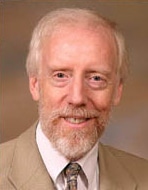For an organization that can’t account for where it gets its money, the Natural Resources Stewardship Project (Not Really Science People) sure seems to be spreading around a great deal.
It’s most recent spending spree involves a nationwide radio advertising campaign that would have us believe that there is “no consensus” on the reality and causes of climate change and that the Slick 60 (see our Denier Database) is actually a legitimate group of climate scientists.
Click here to enjoy NRSP PR person-in residece Tom Harris voice three 30-second flights of fancy. But while listening, remember to add the disclaimer: “This message brought to you by the High Park Group, an energy industry lobby firm that founded the NRSP so it doesn’t have to report who is paying for its devious efforts at policy manipulation.”
Subscribe to our newsletter
Stay up to date with DeSmog news and alerts







